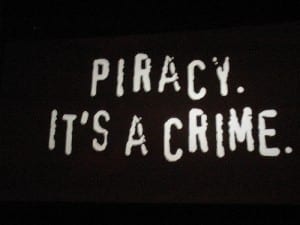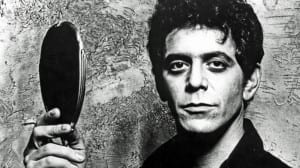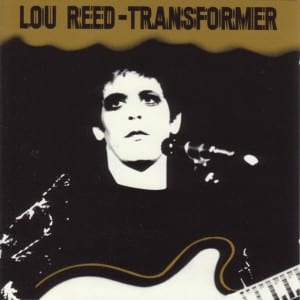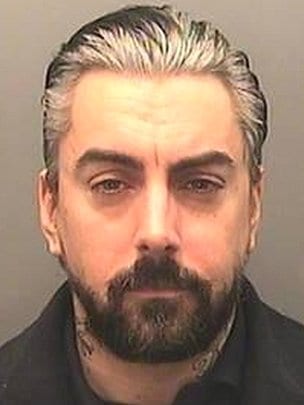A new study argues that the music industry’s death by piracy is highly exaggerated.
The report made by researchers at the London School of Economics Department of Media and Communications(LSE) found that the industry is innovating to adapt to the modern digital market. As a whole, the study found, the music industry has not lost revenue due to piracy.
The findings of the study also challenges the demands from big music production companies for more punitive measures against individual violation of copyright.

“Piracy. It’s a crime” the famous campaign first launched in 2005. The camapign futured a video later added as a unskippable segment in the opening sequences of millions of DVDs world wide. Photo: Elias Bizannes
Sustainable?
Sales of physical CDs has declined rapidly since the early 2000s, forcing the industry to look for new ways of bring in cash. Sales to mobile phones and legal downloads have compensated for some of the loss, but concerts and live shows have been the key to continued profits.
The LSE report has caused some controversy in the music world. The campaigning website Artists For An Ethical and Sustainable Internet reported that Radiohead Producer Nigel Godrich responded with criticism of what he called the LSE short-sighted misunderstanding about artists revenue. Mr Godrich said that “T-shirts and Tickets are nothing to do with copyright and creation, which is the supposed subject of this document.”
He went on criticising the report, saying that he hoped government sees how ridiculous the document seems for people who make records.
Heritage acts
According to the Music Industry Blog, income from concerts are not saving the music industry. The blog argues that live revenues are over reported and that although the average ticket price has increased by 34% in the last 10 years, only a portion of that finds it’s way back to the artists and managers.
The blog also claims that the live scene is dominated by older stars, saying 60% of the 20 top grossing US live acts are aged 60 or over. It says emerging acts are left little oxygen by the massive focus on so called “heritage acts” like the Rolling Stones and Bon Jovi.








